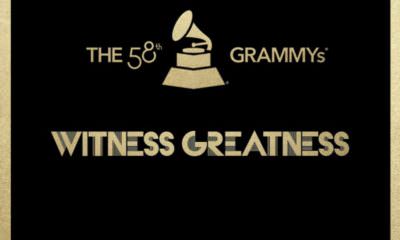Sound Plunge
International Indie Revolution: Its Percolation Effect in India
Independent music seems to be the toast of the town at the moment all over the world. With the recently concluded Grammys branching out and recognizing independently produced music on an international platform and music powerhouse MTV announcing a dedicated channel for indie music called MTV Indies in India, “indie” seems to be on its way to stardom. But does this indie revolution mean big things ahead for Indian indie? Let’s explore.

Ryan Lewis, Ed Sheeran and Macklemore at the Grammys – Will the trend of indie being celebrated on mainstream platforms impact the Indian indie music scenario?
When a commercial juggernaut like the Grammys, arguably the most important annual event of the music industry worldwide, looked up and took notice of independently produced music and labels at the expense of pop icons and commercial label powerhouses, it was time to call out a cheer for the people making music on their own, not bending to what the commercial industry demands. While the Grammys continue to be slammed for celebrating only the canon, it seems the jury is branching out and recognizing more independently produced music as every year passes. (If only independent music beyond Europe and America was given a fairer chance at the Grammys, beyond the blink-and-miss category of World Music.) 2013 was declared the breakthrough year for independent labels, with bands like Mumford and Sons, Fun., The Black Keys, and The Lumineers winning awards in major categories, and who, partly thanks to the recognition from the canon, have found mainstream success ever since; and 2014 turned out to be similar.
A2IM, or American Association of Independent Labels, an organized union for independent music labels has been tracking indie representation at the Grammys since 2006, and claimed that for the 56th Grammys, around 50 percent of the awards went to independent artists. (Here, A2IM defines independent music as music owned by independent artists or labels other than Universal Group, Warner Brothers or Sony Music, notwithstanding business deals with the same.) This is hardly any mean feat in the presence of the pop music establishment with nominees like Timberlake, Bruno Mars and Taylor Swift as competitors this year.
It is very well to say the Grammys do not matter, but the harsh truth remains that they do. Getting a Grammy means access to an international audience, a firmly etched-in-stone kind of place in history, and royalty deals with music sharing websites like iTunes.
While we sit here celebrating transatlantic vindication of the universal indie musician figure on our respective television sets, does this affect the reality of the independent music establishments trying to forge out an audience in India? Are the numbers of independent musicians and bands on the rise? Is more original music free of the Bollywood tag being represented in the Indian mainstream, downloaded, played in public spaces, finding space on television, reaching wider audiences beyond your urban festival regular? Are more gigs happening in Indian cities, and more venues dedicated to music coming up? In short, has indie come into its own in this country, or perhaps do people still view it as a borrowed second hand experience, a ‘western’ influence?
Before we answer these questions, it is important to note what indie means in the Indian context. While opinions are convoluted and contradictory even between musicians, (read here) Rahul Ram, bass guitarist and lead vocalist of Indian Ocean considers the indie tag suited for people “…who’re trying to do contemporary stuff which is non-traditional that has basically come down to mean pop and rock effectively.” So then, do bands and musicians in India who fit part of the definition, if not the whole (never mind the genre, language, etc.) get the recognition and platform they deserve?
A dismal lack of recognition for Indian indie artists is reflected in part by the corresponding lack of award ceremonies to celebrate their body of work. While award shows for film music abounds (from the Mirchi Music Awards which celebrates Bollywood to Vijay Music Awards for the Tamil Music Industry, to GIMA Awards which debuted a few years ago), award shows for indie musicians are virtually non-existent. The first edition of MTV Video Music Awards in India blanketed Yo Yo Honey Singh along with Rabbi, Siddharth Basrur and DJ Kohra, who were all put under the ‘Best Indie Artist’ category.
At the Jack Daniel’s Rock Awards show last year, held at Hard Rock Cafe in Mumbai, Bollywood mini-celebrities were allegedly in the spotlight, shifting focus from the award winning musicians. Moreover, award winners were reportedly hurried along and encouraged to keep their speeches short to make up for lost time. While this might be a one-off incident, it serves as an example of the rather dampening attitude towards musicians and artists. Music festivals are more often than not sold as tourism packages, and highlight the international acts way over the Indian ones. Musicians often face an impasse while trying to organize inter-city tours as the music scenario between cities is more often than not disorganized and disconnected. Nearly 90 percent of respondents to the survey done by Artistik License said there were insufficient venues to perform in the city.
A 2013 survey conducted by Artistik License, a law firm representing independent music artists will have you believe otherwise. Artists complain of several deal breakers like late payment schedules – (Nearly 42 percent of those who responded to the survey received payments for their work only months later while another 42 percent almost never received payments. A staggering 83 percent of all musicians who responded to the survey revealed that they had to continue missing payments for some of their performances due to disorganized venues and event organizers.)
While independent labels are the ones who proverbially walk alone, treading on the threshold of undiscovered music, teasing new genres and exploring new sounds, (besides keeping your belief alive that popular music is not in direct correlation to a great marketing team backing you), they rarely get recognized by the music industry behemoths, and are often wrested out of even fair contracts. T-Series and producer Abhay Deol were embroiled in a public spat because Abhay refused to make musicians involved in his latest release One by Two sign away their royalty rights to the music company.

A video still from a teaser trailer for the upcoming Pepsi MTV Indies.
The scenario certainly is changing abroad with the new rush of recognition for the independent musicians and labels out there in Europe and America in the past decade. Out of the independent labels, Concord Music Group proved to be the most successful at this Grammys, taking home a grand total of 6 Grammys, having been nominated for 19 so far. Their winners included Ben Harper and Charlie Musselwhite’s album Get Up! which bagged the ‘Best Blues Album’ this year. Macklemore and Ryan Lewis’ landmark win (read more about it here) ruffled a lot of feathers with Macklemore coming up on stage and declaring how they had produced the album completely on their own.
True, labels have proved unnecessary for musicians to publish their music with the coming of age of the internet, and it becoming increasingly cheaper to produce music, with even established artists like Raghu Dixit releasing their albums to be purchased directly online, however, the margins remain very low and piracy supreme. Interestingly enough, actual musicians do not feel as strongly about music piracy as music labels, often. Anushka Manchanda said in an interview to a national daily how she feels happy if her music is shared among people. Raghu Dixit, similarly, encourages his fans at concerts to listen to his songs and then buy them.
So then what does this influx of the indie wave bode for independent musicians in the subcontinent, if anything at all? While it might not seem so on the surface, since the Indian indie circuit or in fact the Asian, African and Middle Eastern circuit is conspicuous by its absence at the Grammys. However, the Indian indie music industry remains highly influenced by Western trends, as the approach to music making and the culture of going ‘indie’ can already be seen affecting Indian markets with the increasing number of music festivals in India getting a lot of press being but one instance of this. MTV India along with Pepsi is going to launch an indie music channel as well, with the potential to reach larger audiences than ever before with an exciting tagline that goes “Indie has arrived”. Whether India will see another indie music revolution like in the 90s with the launch of MTV, and what other rippling effects it will have on independent music’s scope in India remains to be seen.










































